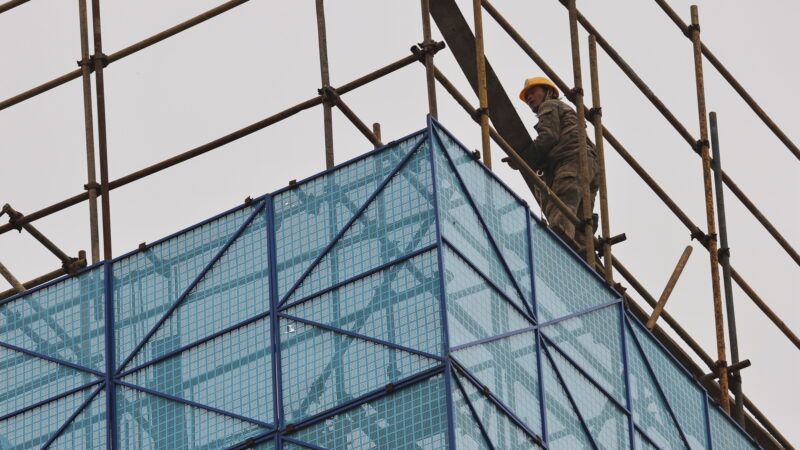Biden's Build Back Better Plan Contains One Potentially Helpful Housing Program
Funding for affordable housing and grants to incentivize streamlining zoning laws could represent a policy win for YIMBYs.

President Joe Biden's Build Back Better Act, which has passed both the House and Senate as of Friday, is a remarkably optimistic piece of legislation, pledging to do a lot on a budget about a third the size of the original proposal (while still being, on a pure spending level, one of the most expensive pieces of legislation in years). One of the least offensive provisions of the bill, however, relates to housing.
Homelessness is a major issue in the U.S., and is inherently intertwined with the cost of housing. In fact, in a recent poll, respondents from the 20 metro areas that experienced the largest population growth between 2010–2019 listed both the cost of housing and homelessness as their top two concerns, and by almost identical margins (86 and 87 percent, respectively). The average cost of rent has increased nearly 20 percent within the last year alone, and since 2001, in nearly every state, rents have risen at a faster rate than incomes.
But simply offering rental assistance without a simultaneous increase in the supply of housing would only serve to exacerbate the cost problem, as a larger amount of money would chase after the exact same amount of inventory. In fact, the U.S. is currently as many as 5 million houses short of meeting estimated demand.
Of the roughly $150 billion which the Build Back Better Act appropriates toward housing, more than half is put toward dubious use, via rental assistance programs. About a third of that portion, though, is specifically tailored toward the construction or rehabilitation of more affordable housing units to increase the overall supply, which could help drive down costs.
In the same poll, which found broad concern among urban residents about housing affordability, comfortable majorities also expressed support for various measures intended to "mak[e] more affordable housing options available." Unfortunately, state and local governments in thrall to the concerns of vocal NIMBYs (short for "not in my backyard") tend to oppose any such development that could address a shortage of housing, even though zoning may be the single most consequential type of regulation in disadvantaging the poor.
The Build Back Better Act does fund the establishment of a "competitive grant program," the Unlocking Possibilities Program, to incentivize "streamlining regulatory requirements and shorten[ing] processes, [and] reform[ing] zoning codes." As with any grant program, its efficacy will be dictated by its implementation, but with more than $4.26 billion appropriated, there is plenty of breathing room to potentially make a difference.
In an ideal scenario, of course, there would be as few zoning restrictions as possible, allowing developers to simply respond to the needs of the community without requiring the government's stamp of approval. While public funding to incentivize a reduction or simplification of red tape is better than the status quo, it is still not a perfect solution.
Biden's overstuffed bill may be more flawed than advertised, but it does make some gestures toward correcting this one specific problem.


Show Comments (47)